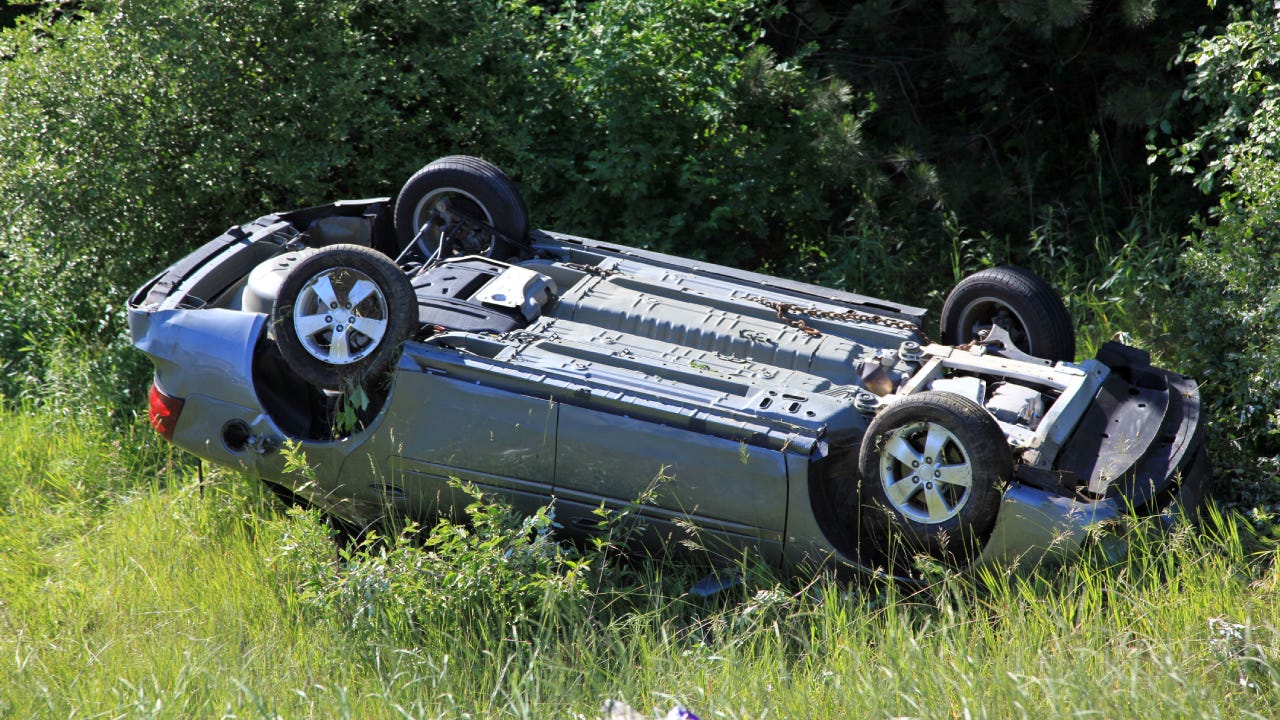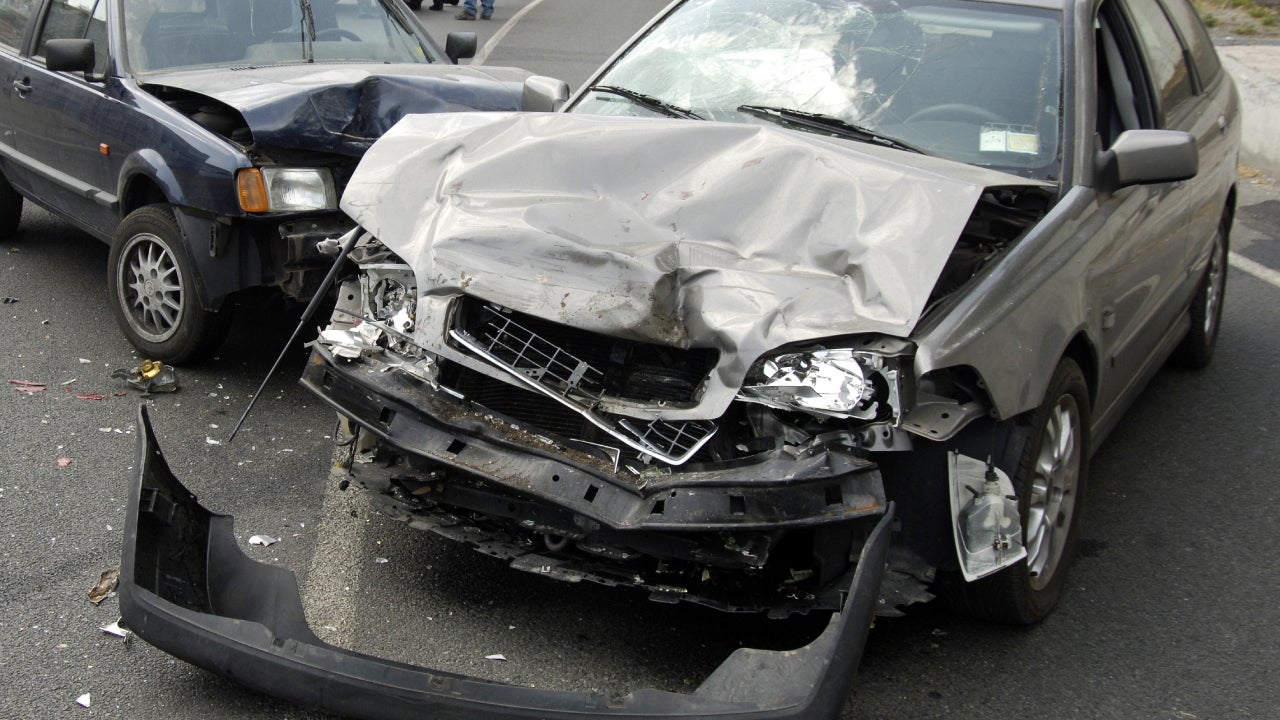What is total loss car insurance?

Total loss car insurance is coverage that kicks in to help pay for the cost of replacing your car after it is totaled. Generally, it refers to full coverage policies, which include collision and comprehensive insurance. These types of coverage will help pay for damage to your vehicle, and depending on your policy limits, may cover the cost of your totaled car. Each state has a total loss formula that helps individuals and insurers determine when a car is totaled.
What is total loss?
Total loss car insurance provides coverage for when a vehicle is damaged beyond reasonable repair in a covered claim. To determine whether your vehicle is damaged beyond reasonable repair, your auto insurer will assign a claims adjuster to assess your vehicle’s value by checking for damages and considering other variables that depreciate value. The company then uses this information in conjunction with market value data to determine how much your car is worth. The number they arrive at is called the actual cash value (ACV). If the car is worth less than repairs would cost and has total loss coverage, the insurance will make a payout for the totaled vehicle.
How is total loss value calculated?
There are two primary methods for determining when a car is a total loss:
- Total loss threshold: When a vehicle’s total loss value reaches a specific percentage of the car’s market value, that is the total loss threshold. Each state has its own total loss threshold, which could be a certain percentage or the total loss formula.
- Total loss formula (TLF): The total loss formula is the vehicle’s fair market value less its salvage value. The insurer can deem a vehicle a total loss if repair costs meet or exceed the TLF figure.
Full coverage car insurance usually includes comprehensive and collision coverage, which can help pay to replace a vehicle that has been totaled in events that are covered on your policy. If your car is financed, you may want to consider gap insurance to cover the difference between what you owe and what your car is valued at after a total loss event.
-
State Total loss threshold* Alabama 75% Alaska TLF Arizona TLF Arkansas 70% California TLF Colorado 100% Connecticut TLF Delaware TLF Florida 80% (depends on whether vehicle is insured or uninsured) Georgia TLF Hawaii TLF Idaho TLF Illinois TLF Indiana 70% Iowa 70% Kansas 75% Kentucky 75% Louisiana 75% Maine TLF Maryland 75% Massachusetts TLF Michigan 75% Minnesota 70% Mississippi TLF Missouri 80% Montana TLF Nebraska 75% Nevada 65% New Hampshire 75% New Jersey TLF New Mexico TLF New York 75% North Carolina 75% North Dakota 75% Ohio TLF Oklahoma 60% Oregon 80% Pennsylvania TLF Rhode Island 75% South Carolina 75% South Dakota TLF Tennessee 75% Texas 100% Utah TLF Vermont TLF Virginia 75% Washington TLF Washington, D.C. 75% West Virginia 75% Wisconsin 70% Wyoming 75%
What happens if your car has been declared a total loss?
If you receive a vehicle total loss declaration from your insurance company and don’t want to dispute the decision, there are a few things to know about the total loss process. If you are currently leasing your vehicle, you should also contact the leasing company and inform them that it has been totaled. The steps below describe what you should do if your car is declared a total loss.
- Remove license plates. Remove both the front and back license plates and take them with you. Leaving your plates where someone might take them can lead to complications down the road. The safest approach is to maintain possession of the license plates until they are no longer on your record with the DMV.
- Remove personal belongings. While removing your license plates, look inside of the vehicle as well. Check the dash, glove compartment, door and seat pockets, trunk and anywhere you might have left possessions. Once you turn your keys in, you may not be able to recover anything that you left in it.
- Give the keys to your claims adjuster. Once you have finished getting your plates and possessions from the car, you will need to hand over all sets of keys to your claims adjuster. When you do, they will provide you with several documents to complete.
- Complete the required paperwork. Fill out and sign all documents that have been provided to you by your claims adjuster. You will likely no longer be responsible for the vehicle by the end of the process, as most people decide to transfer the car title to their insurer. However, you could choose to keep the vehicle and refurbish it enough to qualify for a rebuilt title if you’d like to drive it again.
How to dispute a total loss
Suppose your vehicle is declared a total loss and you disagree with that assessment. In that case, it is possible to dispute the decision. When you dispute these decisions, you are attesting that your auto insurer undervalued your vehicle and declared it totaled prematurely. Here are the steps you may want to consider to initiate a dispute:
- Assemble documents and vehicle information. To prove your vehicle’s actual market value, you will want to gather any documents you have that reflect this. These might include the original receipt of sale, as well as notations on the various features and add-ons that your car has.
- Assess current market information on your vehicle. Using a resource like Kelley Blue Book, find out the average current market value of your vehicle make and model. This tool is excellent for providing ballpark figures. Yet, it may not be precise enough on its own to dispute the total loss declaration. For exact figures, you could get an appraisal.
- Notify the insurer of your stance and submit your evidence. Contact your claims adjuster and inform them that you think they undervalued your vehicle and that you are disputing the total loss declaration. Provide them with your documentation and notes, including the information you gathered on market value.
- Request an appraisal. If your auto insurer remains unconvinced at this point, you may request an in-person appraisal of your vehicle. Many of these determinations are made based on paperwork and known variables (like make and model) without an in-person appraisal.
- Consider legal action. If after you have completed all of the steps described above and you and the insurance company still cannot agree on whether your vehicle was appropriately valued, you may consider filing a complaint with your state’s department of insurance. This process can be lengthy and complicated, but may be worth pursuing if you believe your auto insurer is acting in bad faith.
How much does a total loss pay out?
Total loss car insurance settlement payouts depend on the value of your vehicle. When your insurance company determines whether to declare the car totaled, they are concerned with its actual cash value. This is what the vehicle is worth after considering any damage or depreciation factors. Once all of the necessary factors have been taken into account, the insurance company will pay you the actual cash value, assuming the claims process is successful.
Can you keep a car that’s a total loss?
Yes, you can keep a car that’s a total loss. This is called retaining salvage. Since the vehicle is now worth less because of the total loss, the vehicle is only worth its salvage value, which is substantially less than its market value. You may have to remove comprehensive and collision coverage on your vehicle until you can prove that the vehicle has been repaired. Keep in mind that if you do so, you won’t be able to get the same value if the vehicle is damaged again.
If you decide to keep your car after a total loss, the insurance company will notify the Department of Motor Vehicles (DMV) to issue a salvage title. This shows the vehicle was deemed a total loss and received substantial damage. It can be difficult to insure a salvage vehicle, so it may be worth it to take the steps to get a rebuilt title if you plan to repair the vehicle and sell it or reinsure it.
Frequently asked questions
-
-
The total loss formula, often abbreviated TLF, is a calculation that insurers use to determine whether the cost of repairing a damaged vehicle is more than they are willing to take on. When the cost of repairs is higher than a certain percentage of the vehicle’s ACV, it’s typically determined to be a total loss, and the insurance company will pay the driver the ACV of the car rather than covering the cost of repairs. The exact formula and percentage varies by insurance company and jurisdiction.
-
These two terms are not the same thing. A total loss vehicle is one that has been so badly damaged in an accident or other mishap, such as a fire, that it is worth less than the cost of repairs. A salvage car is one that was declared totaled, but then was kept by its owner or resold for parts rather than being junked. A salvage vehicle is likely to have a salvage title, which is an official document that states that the car has been totaled and then sold or rebuilt.
-
You may want to consider disputing a total loss declaration if you disagree with the insurance company’s decision to total your vehicle. Once the vehicle is declared totaled, you can use market research to determine your car’s market value. If you believe your vehicle was undervalued and it is actually worth more, the insurance company will review your documentation and make a decision. If you win, your vehicle could be repaired and returned to you, although the outcome is not guaranteed.
-
If you’re looking at policies from the top car insurance providers, you may be wondering which insurance policy types include total loss coverage. There are two main types of auto insurance that provide total loss coverage: comprehensive coverage and collision coverage. If your vehicle is totaled in a non-fault accident, a total loss may also be covered by the at-fault driver’s property damage liability. Additionally, you could purchase gap insurance to cover your remaining loan balance if your vehicle is leased.
-
You do not need total loss car insurance to drive legally in any state in the U.S., but it may be required by your financial institution if you lease or finance your vehicle. Almost all states have a required minimum amount of car insurance, but this generally just includes liability insurance to cover damage and injuries to the other car and its driver and passengers. You are considered to have total loss car insurance if you purchase full coverage insurance, which will help pay for damage to your own vehicle in an accident or mishap.
-
A total loss insurance claim works similarly to a regular insurance claim. Your insurance company will send out a claims adjuster to review your totaled vehicle. During the claim adjuster’s visit, they will review the damage, determine an amount that should be paid out and come up with a value for your car. Once these three considerations are met, the adjuster will determine if your car is a total loss. The type of insurance coverage you have will determine how much your insurance company will pay you after a total loss; speak to your agent if you want to understand how your coverage might kick in after a total loss.
-
Why we ask for feedback Your feedback helps us improve our content and services. It takes less than a minute to complete.
Your responses are anonymous and will only be used for improving our website.
You may also like

What is a comprehensive car insurance claim?

Buying car insurance for a new car







